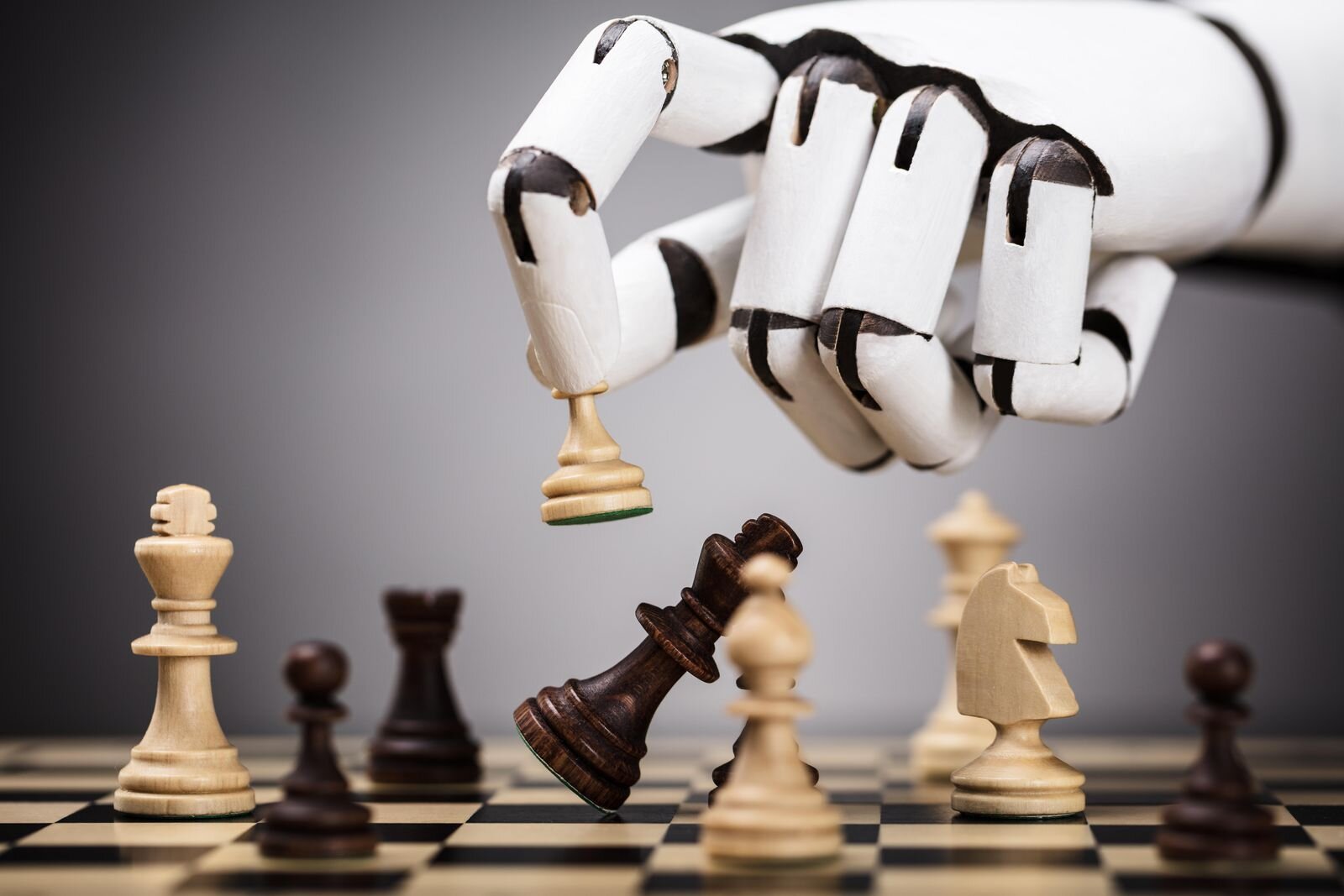In September 2020, the world of chess witnessed an interesting U-turn when a former world chess champion and an AI game-playing software came together to explore interesting variants of the game to initiate players into newer creative patterns.
It was the first time in chess that human intelligence collaborated, rather than compete, with machine learning to bring innovative game variants.
AI v/s Chess
When AI made its maiden entry into the world of chess, it was to upset and upend the human chess masters in their games. AI-backed computer chess machines had beaten the best of human chess players since 1997 when IBM’s supercomputer Deep Blue defeated the grandmaster Gary Kasparov.
Soon computer chess changed the algorithms of the ancient game and as the legendary Bobby Fischer lamented back in 1996, it had become a necessity to redesign chess “to demote computer-enhanced memorization and encourage creativity”. Fischer unveiled the Fischer Random Chess, as his initiative to a more human and creative pattern of gaming. In this method, the usual rules of play are sustained but with randomized starting positions of some of the powerful pieces in the board game. Fischer Random, alias Chess960, has eventually merged into mainstream chess and today has its own tournaments.
Recently in 2017, it was yet another trailblazer-moment for Artificial Intelligence when AlphaZero, the game-playing AI bred by Google’s DeepMind defeated the world’s best chess-playing computer program, after teaching itself how to play without any human aid. The time it took to learn and beat the world champion chess program, was less than four hours.
The Go-playing AlphaZero has been designed, or rather repurposed, to learn other games including chess. The AI learnt the rules of chess to beat the ‘computer’ chess wizard Stockfish 8 within four hours in a 100-game match up. It drew or won all the 100 games.
As per Demis Hassabis, the founder of DeepMind and a child chess prodigy himself, AlphaZero achieved a superhuman standard of play within 24 hours beginning with random play, and with no domain knowledge except the basic chess rules. The AI had similarly won other mind games like Go and the Japanese board game Shogi.
In the words of Gary Kasparov, it was a remarkable achievement even for a brilliant AI like AlphaZero considering the fact that chess was assumed to be too logically complex for a machine to play from scratch without any human assistance.
Collaborating for Creativity: AI to enhance human chess
Today as machine learning and human intelligence collaborate to revive the cold logics of chess from the computer-injected coma, it is a sharp turn around the corner.
Grandmaster Vladimir Kramnik, who has associated with DeepMind in re-coding the creative patterns in chess, agrees that the game has been losing its creativity and reduced to a memory game thanks to the computers’ “soulless calculations”. The machine-based programming by computer chess has brought in a tendency among the new generation of players to memorise a varied list of openings and defenses by rote. In the grandmaster’s own words, the players no longer play their preparations but repeat that of the computers.
Kramnik through his collaboration with DeepMind intends to restore that human element to chess, interestingly with the help of an “adversary” —the world’s most efficient chess computer. DeepMind had challenged their golden child AlphaZero to learn nine variants of chess that are designed to usher in new creative patterns for the chess players.
According to Nenad Tomašev, who is one of the DeepMind researchers, chess engines were initially designed to beat their human counterparts, but with AlphaZero’s potential a more creative collaboration can be initiated between human and machine intelligence for the betterment of the game. AlphaZero’s capability to learn a game from scratch and explore new variants is astonishingly proficient and faster than centuries of evolution of the game.
AlphaZero was initially unaware that in chess it can take the opponent’s pieces. But within hours of high-speed play against more powerful self-incarnations, it became more natural and skilled than any of the other chess engines. In itself-exploratory method, the machine rediscovers patterns that are similar to those of centuries-old human chess to which it adds its own flair.
Winding Up
DeepMind and Kramnik also intend to motivate more creativity in computer chess as well, since machines are soon becoming inimitable in intelligence and performance. The emphasis is more on artificial intelligence as an aid to rediscovering creativity in chess - more as an art form - rather than a tool to defeat human players.
As machines work along with humans as in Kramnik’s project, it could open new frontiers for the sport, enhancing both technical as well as “emotional” experience of the game. As Kramnik comments, after three moves (against AI) one does not know what to do. That feeling of blankness “like a child” will spur the saturated human brains to explore more, discover and strive harder to conquer new labyrinths of the sport.


